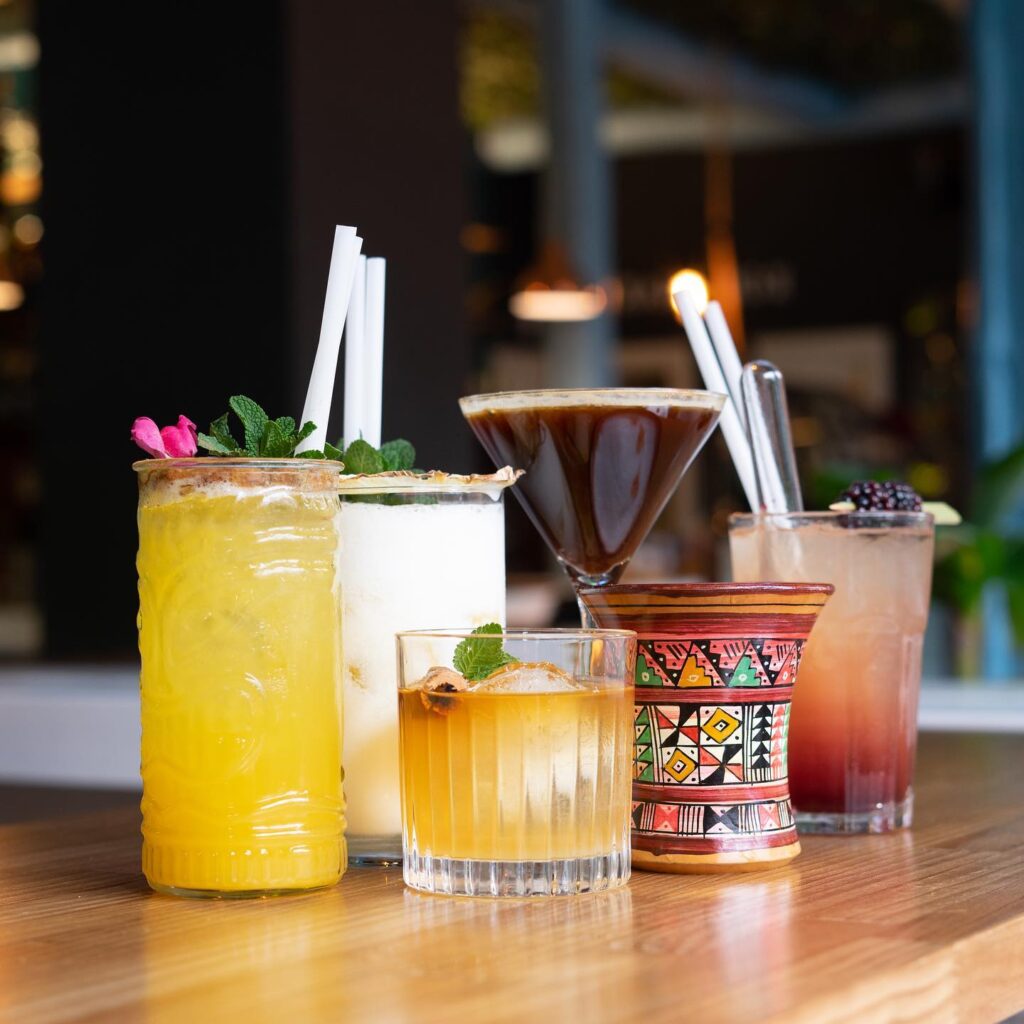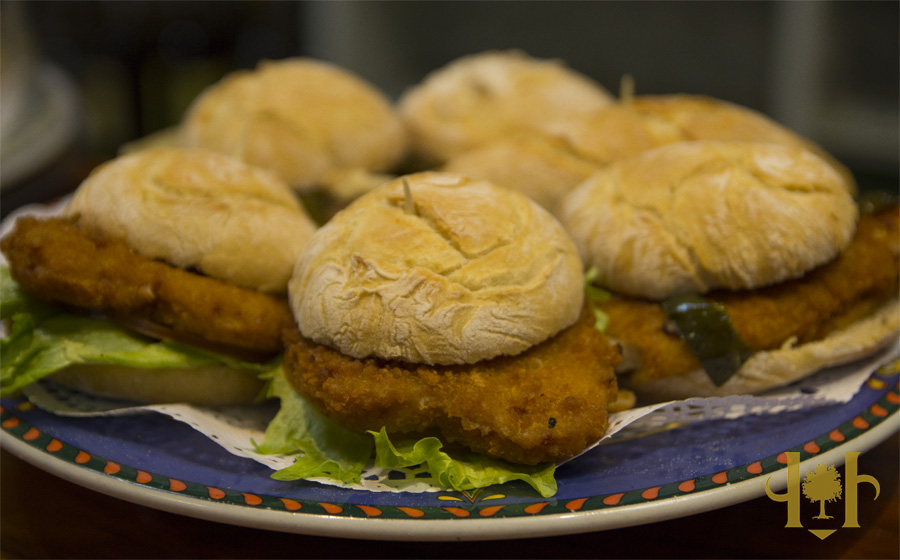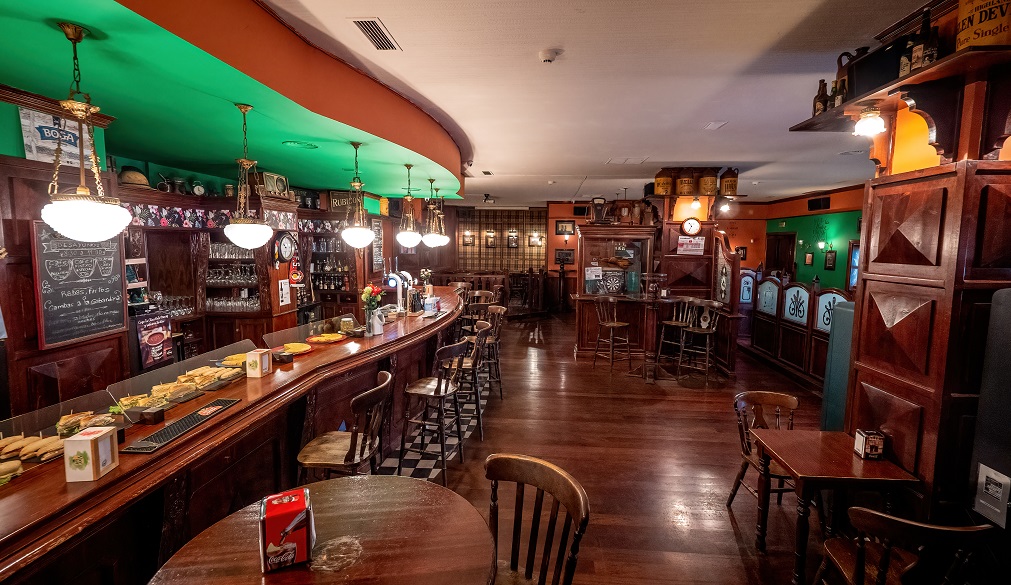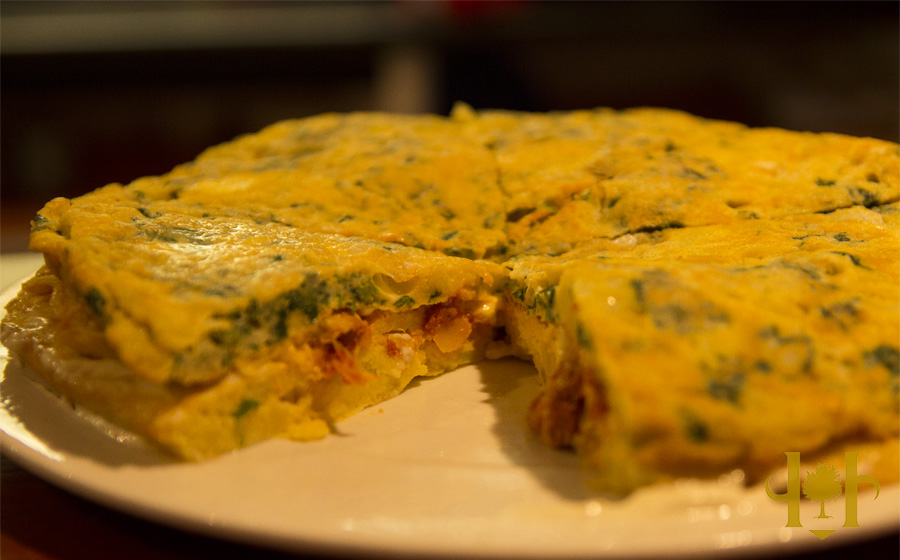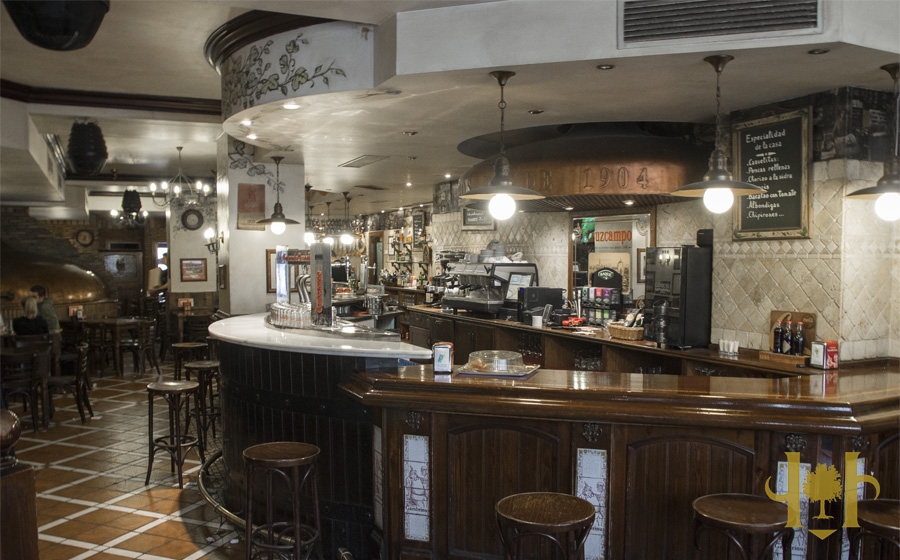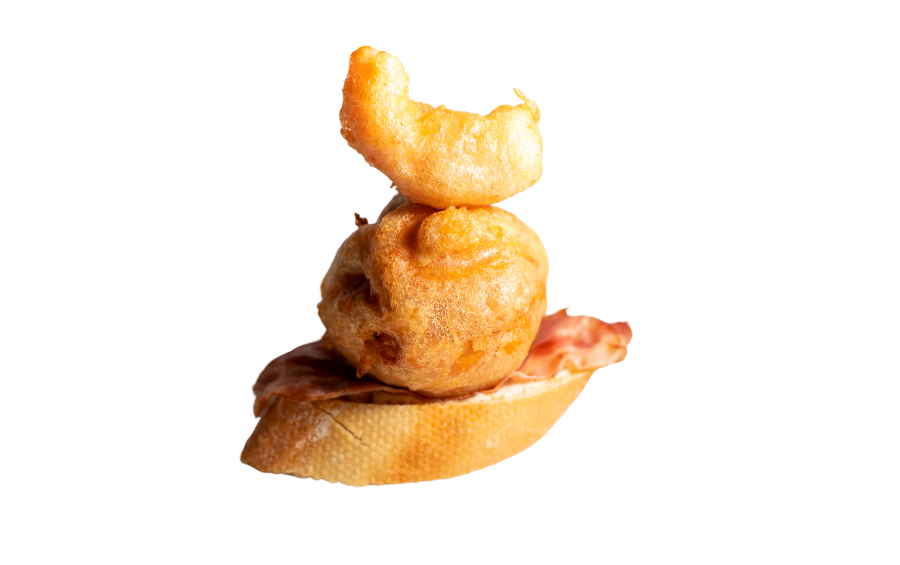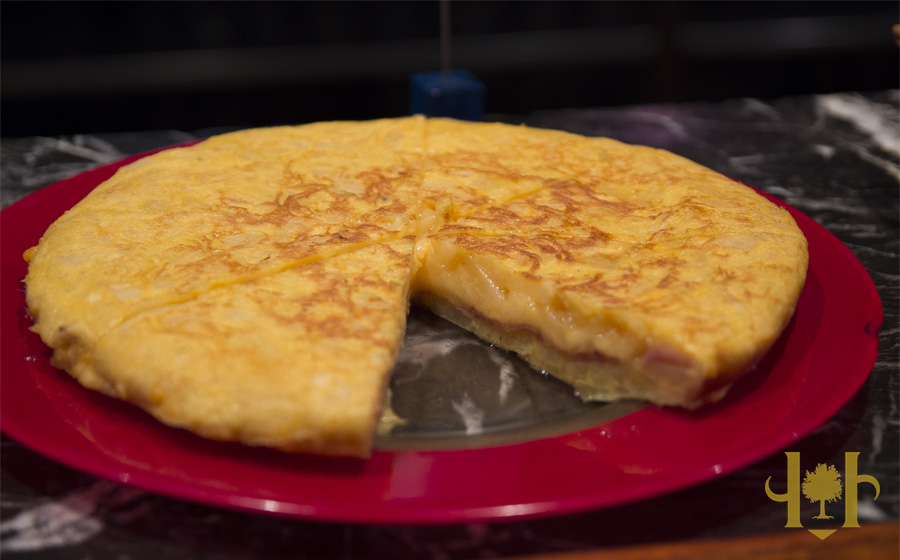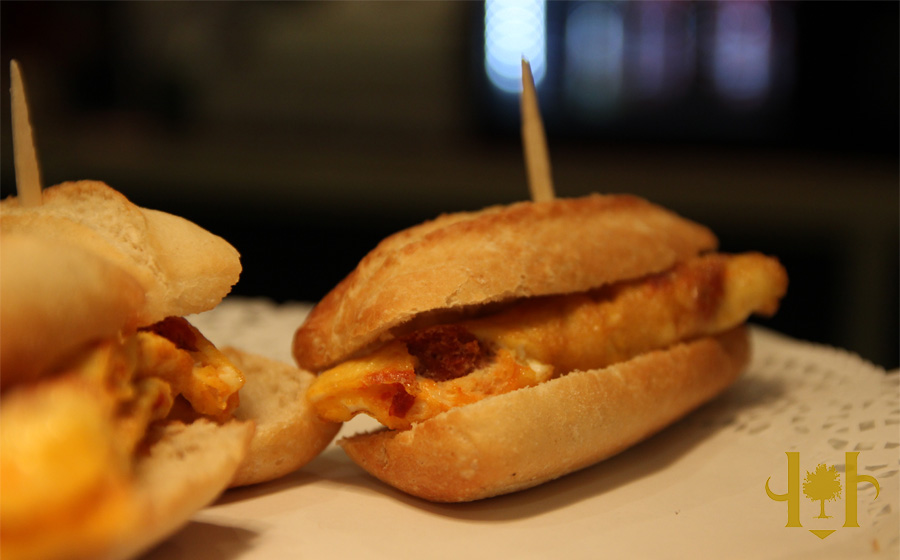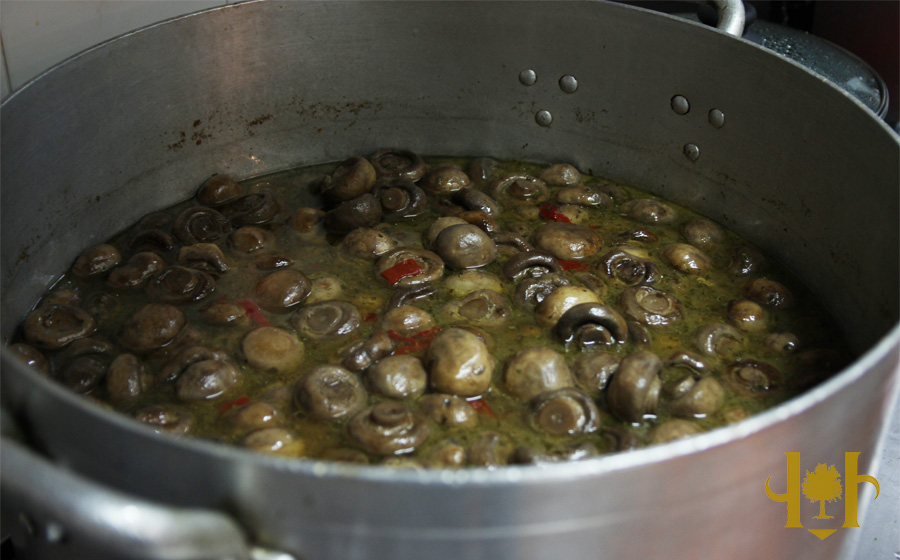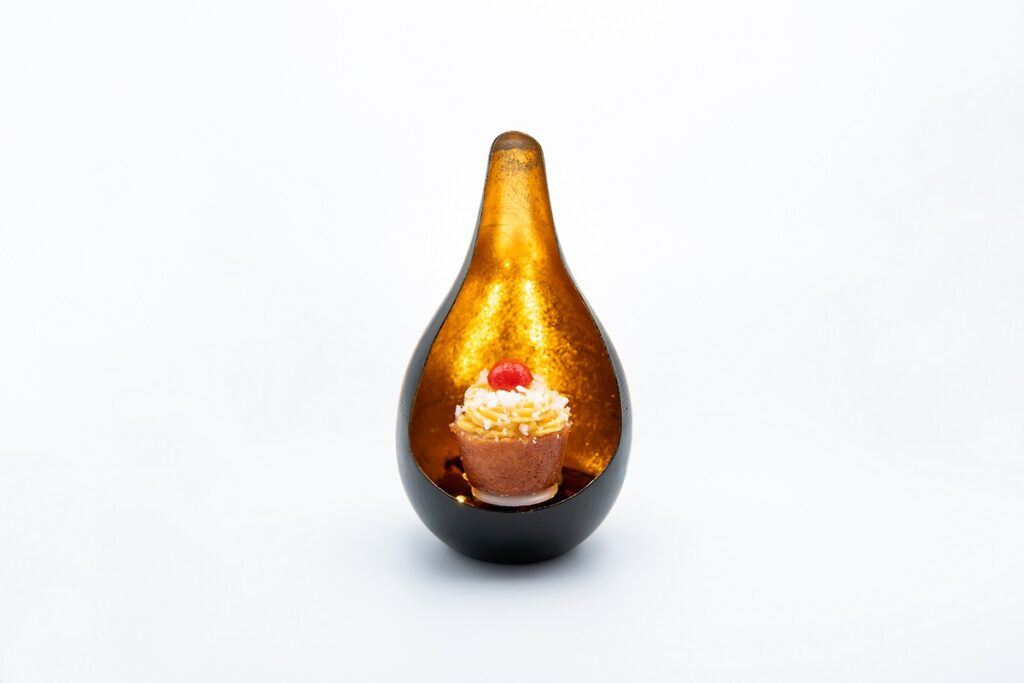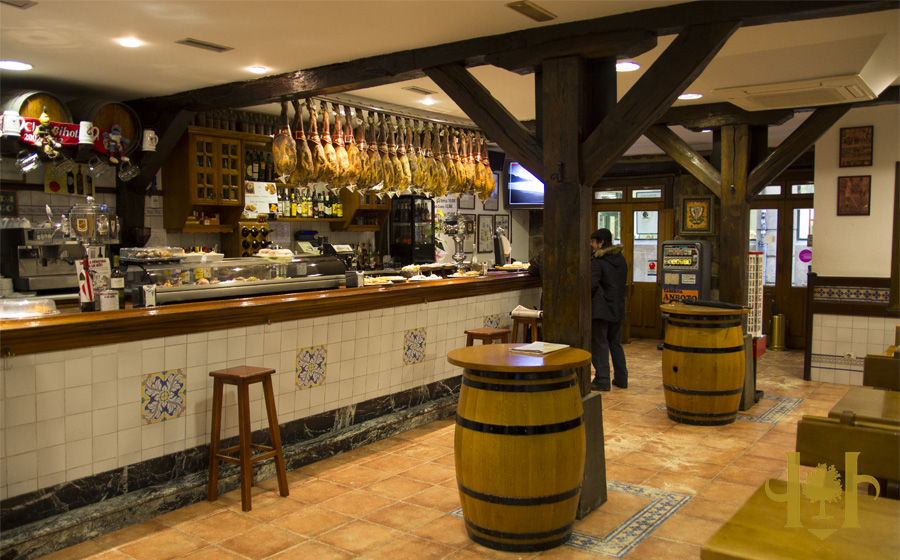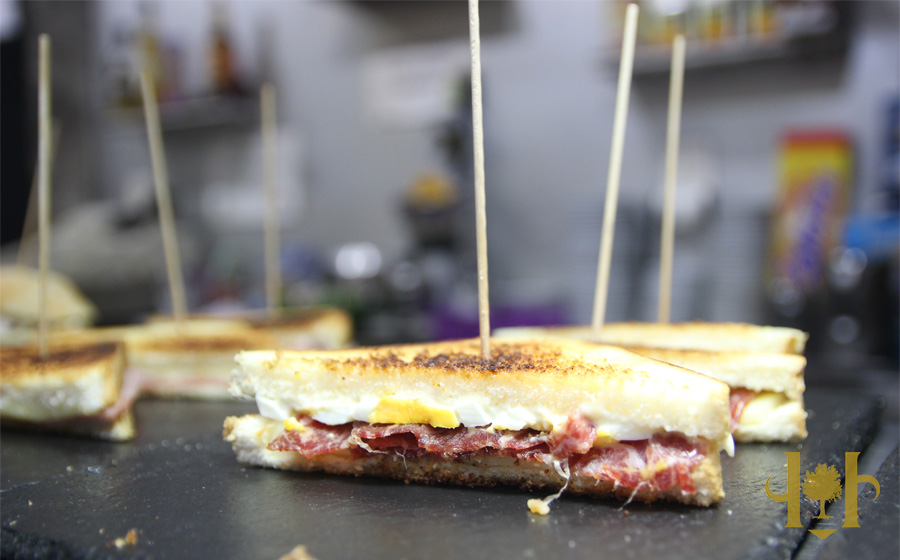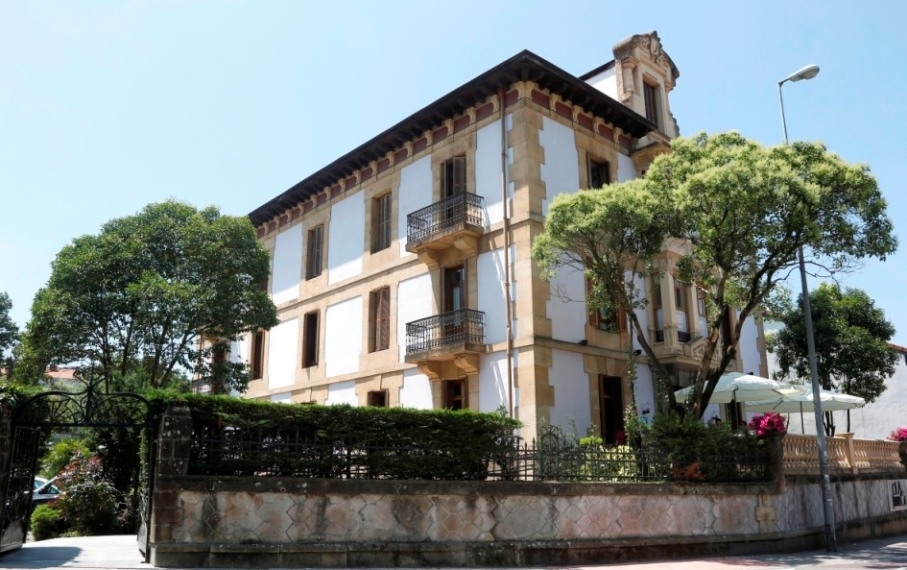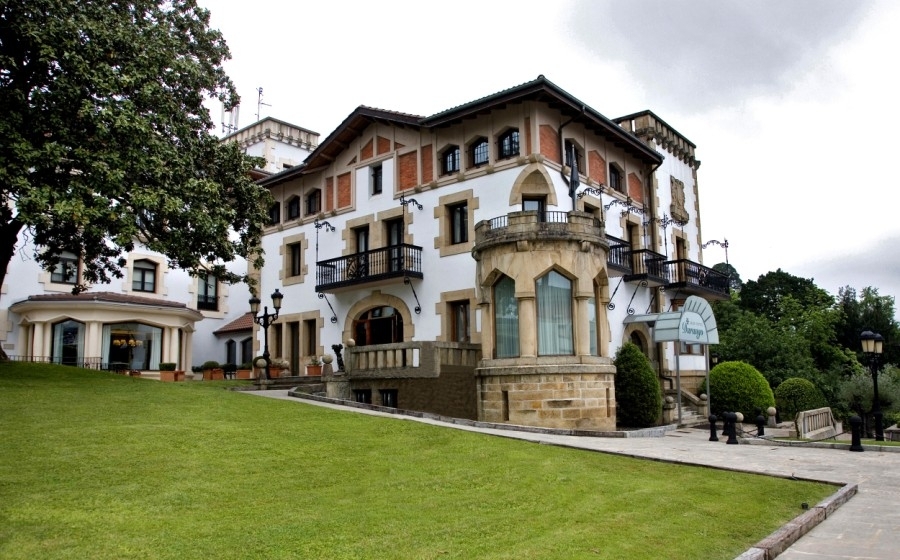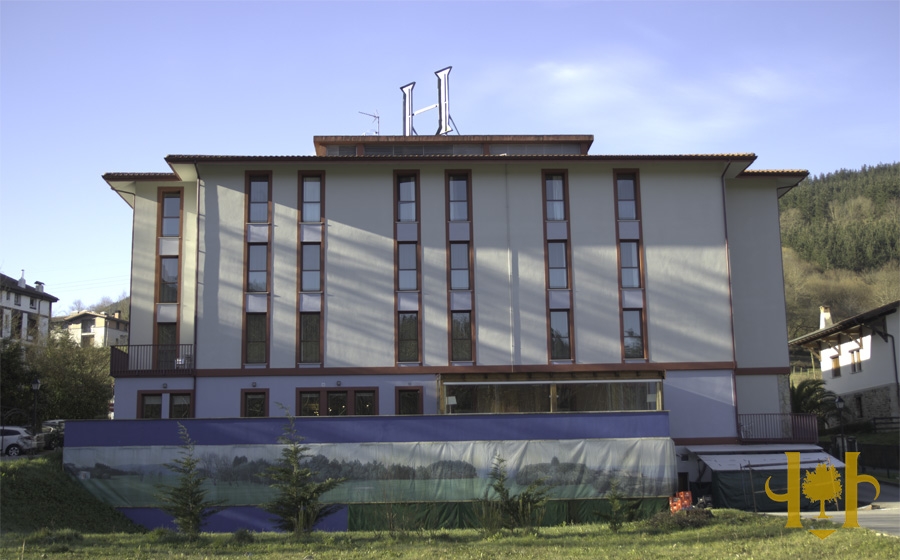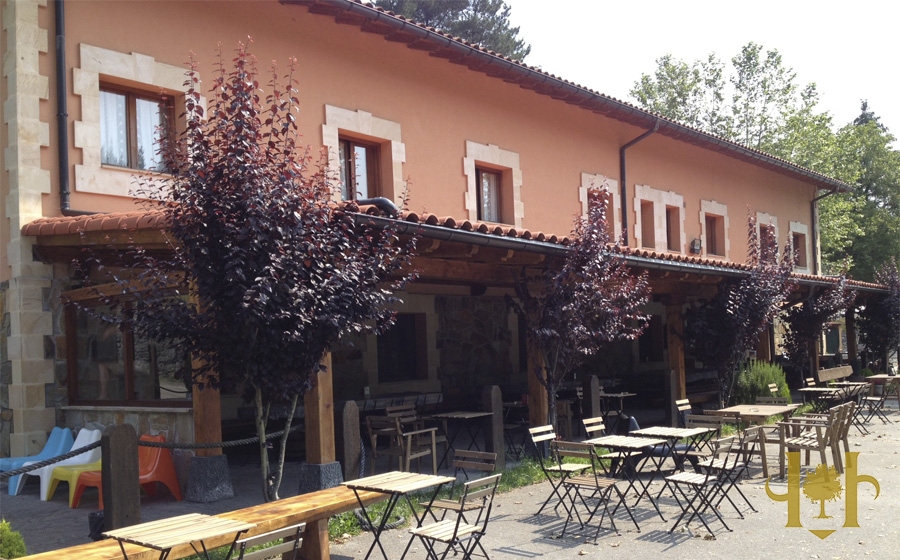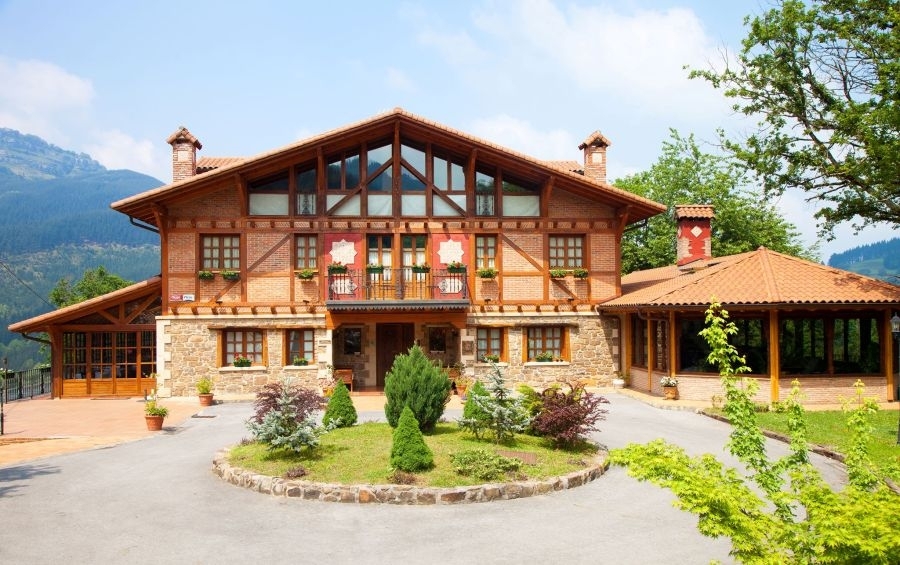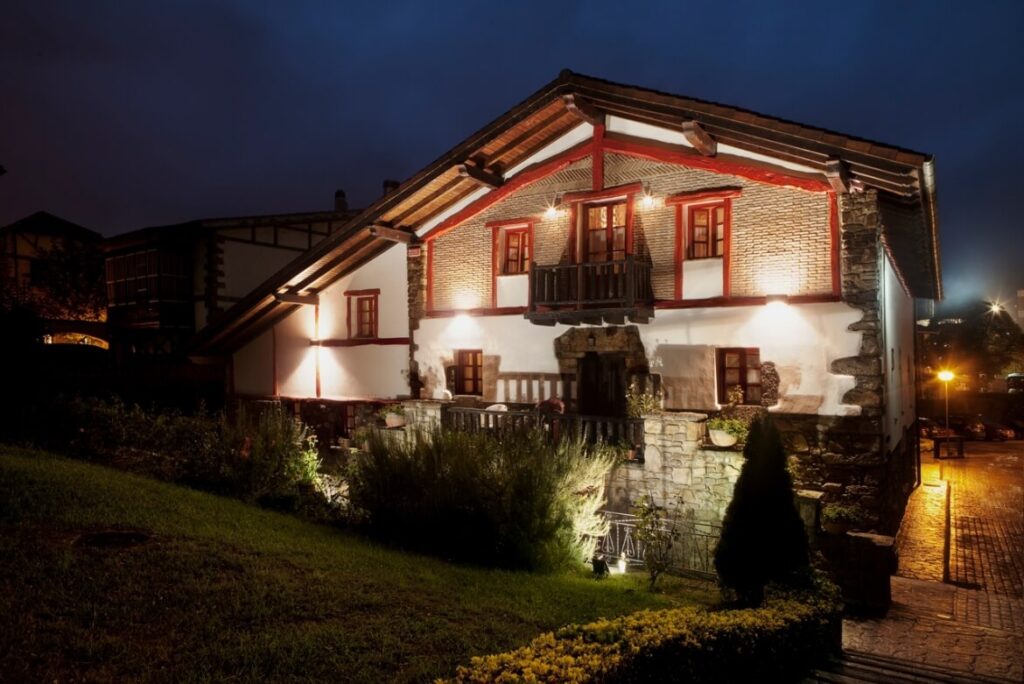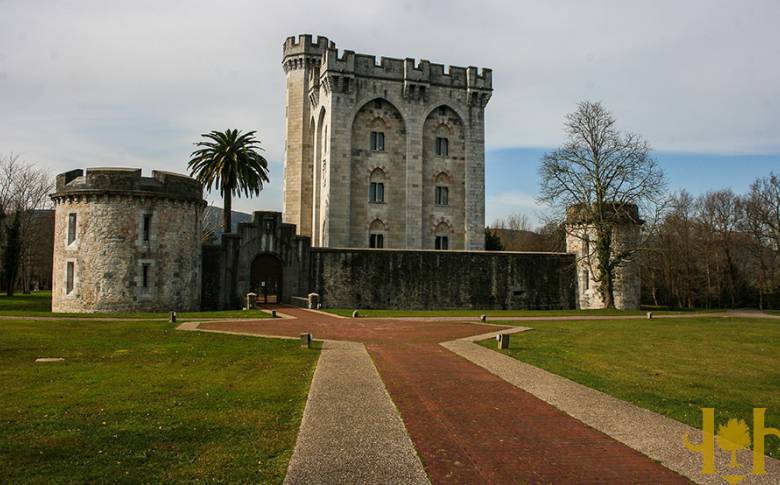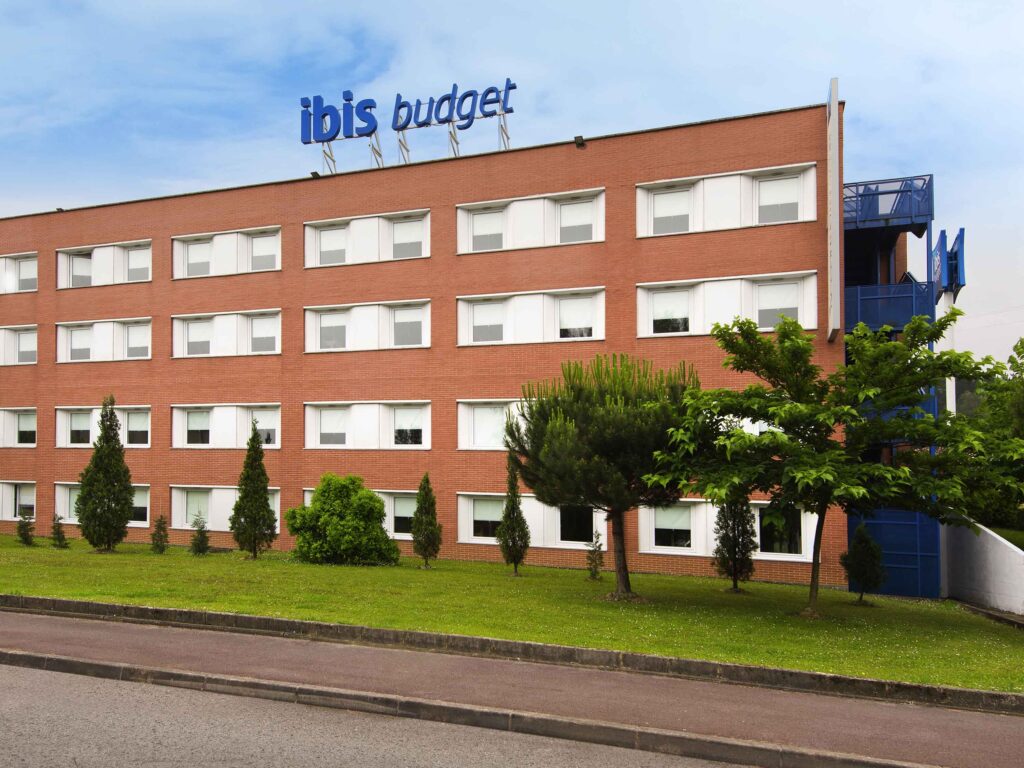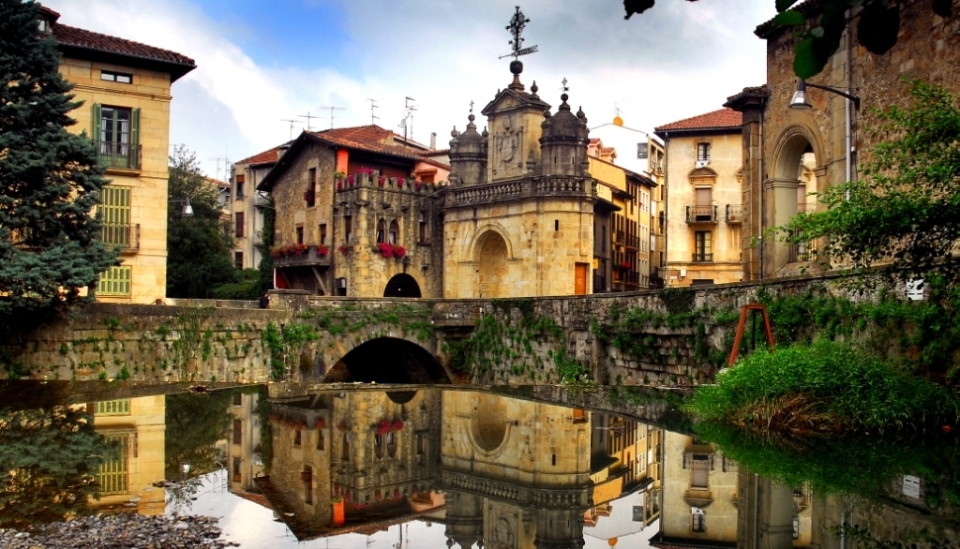
This mediaeval town located in the area known as the Duranguesado is located in a beautiful valley between mountains just 5 miles (8 km) away from the Urkiola Natural Park. It is also home to an interesting architectural heritage.
| Tourism Office | In the Kurutzesantu museum
Kurutziaga, 38 48200 Durango T: 94 603 39 38 / Email: turismo@durango.eus |
| Festivities of San Fausto | Around 13 October |
What to see in Durango
The most attractive part of Durango is its mediaeval quarter, declared a Monumental Site.
We start our stroll at Torre Lariz followed by Puerta de Santa Ana just a few metres further on. The route through the old part of Durango continues along Artecalle as far as the well-known portico of the Church of Santa María de Uríbarri. we then go down Calle Santa María to reach the Museo Kurutzesantu, which is located in the ancient chapel of Veracruz and is home to the Cruz (cross) of Kurutziaga. The Tourism Office is now located there, and you can find all the information you need on places to visit and things to do in Durango.
Torre Lariz
This urban mansion is the oldest civic building still conserved in Durango. An anecdote: Queen Isabel the Catholic stayed here in 1483 during a visit to the town to swear allegiance to its charter.
Basilica of Santa María de Uríbarri
The Basilica of Santa María de Uríbarri is one of the greatest monumental works in the Basque Country and is classified as a National Monument.
Its interior is well worth a visit, although the building is particularly well known for its spectacular wooden portico, the biggest in the Basque Country.
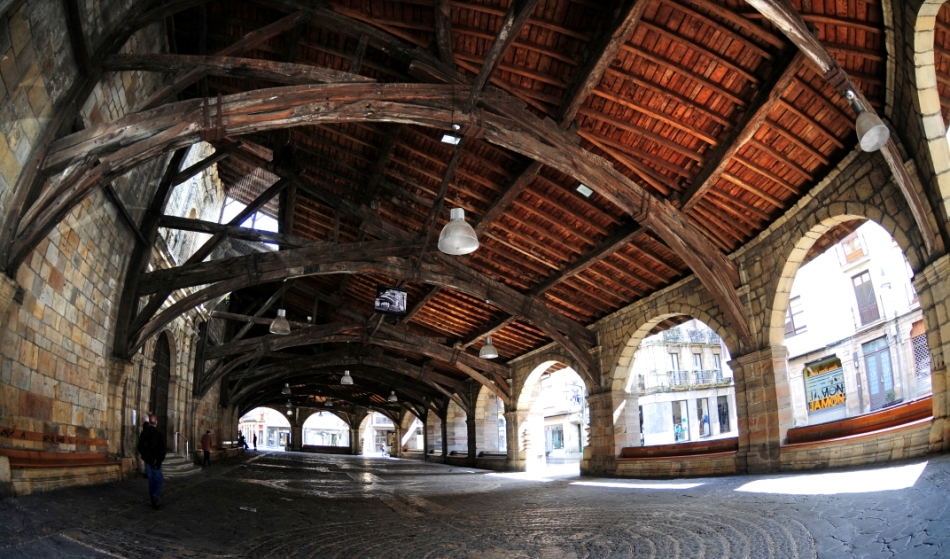
Arco de Santa Ana
The Arch of Santa Ana is the only one left of the six gates that used to stand in the walls around the town of Durango. It is in the Baroque style, and replaces the previous Renaissance arch. It was previously known as ‘the gate to the market’, as it was the place where the goods that supplied Durango passed through.
The arches located in Plaza de Santa Ana next to the church of the same name is a good example of Baroque religious architecture. Other buildings of interest in the square are the Old Mill of Santa Ana, Palacio Lejarza, Casa Zabala and Palacio Arribi.
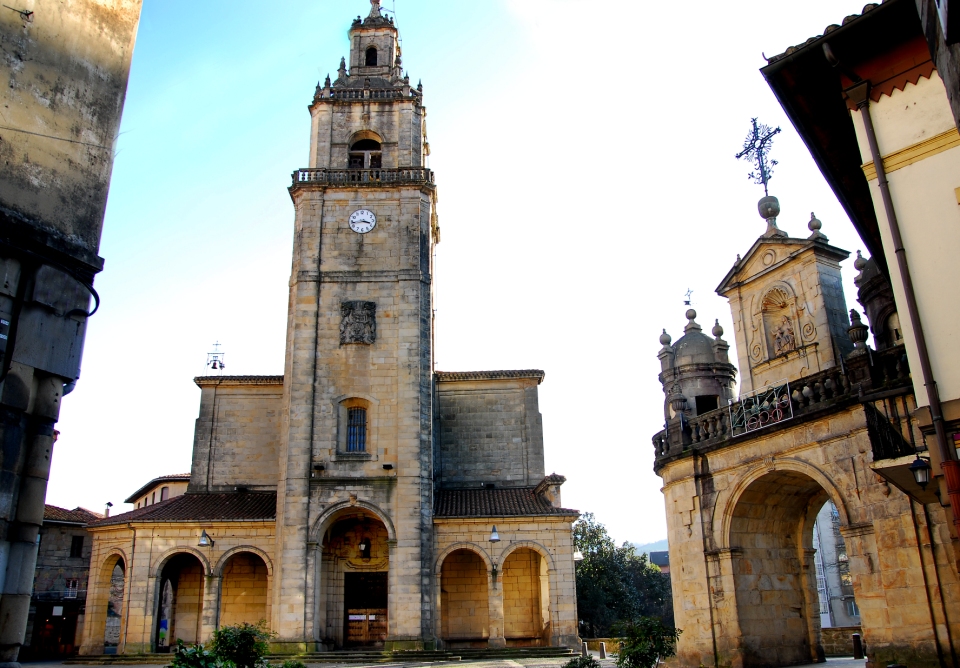
Museo Kurutzesantu and Cruz de Kurutziaga
The museum exhibits one of the monumental jewels of Biscay: La Cruz de Kurutziaga, a Gothic cross declared a historical artistic monument.
The Kurutziaga Cross is a unique piece from the 15th century. It is four and a half metres high and its sculptures tell a story from the column up to the cross.
There are different versions regarding its meaning. Its symbolism is probably related to the ‘heretics of Durango’, although some authors say it has to do with the brotherhood and chapel of Vera Cruz, while others point out its function as a border marker.
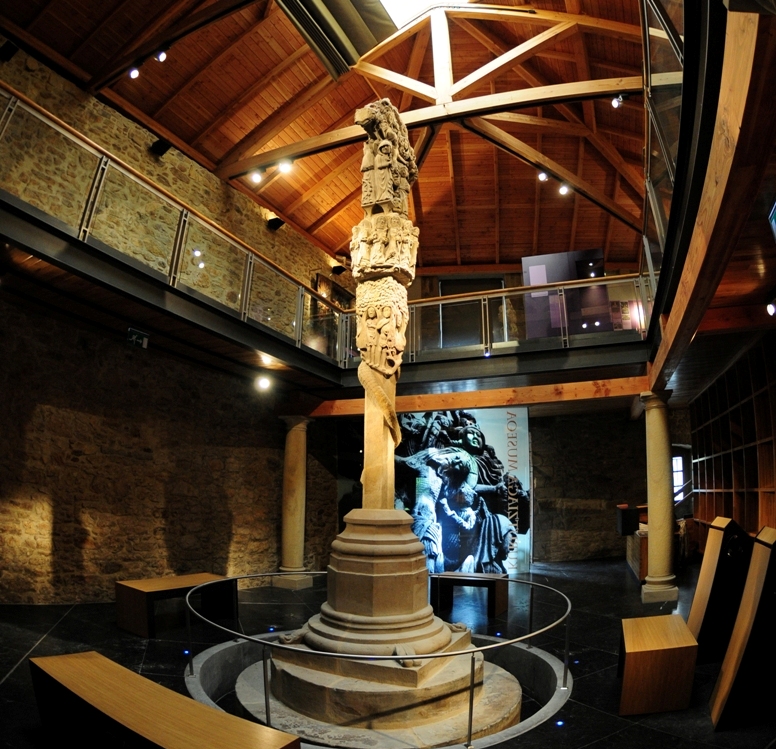
In modern Durango, Plaza Ezkurdi is the focal point of the town. With its bandstand, monumental fountain and sculptures around the square, it is the main place where the townspeople meet.
The Frontón Ezkurdi Jai Alai is located here, a large covered structure, although on the wall located at the entrance to the arcade of Ezkurdi a plaque can be seen recalling the facing of the left wall of the old fronton (Basque pelota court)
Visit Durango at your leisure with audio guides
The Tourism Office of Durango offers visitors audio guides and maps so you can ‘see Durango at your leisure’. This option helps you to get to know the town’s heritage and history as you take a stroll around it, either on your own or in a group.
There are several itineraries commented in the audio guide:
‘Cuéntame Durango’, lasting 90 minutes, to discover the history and heritage of Durango.
‘Huellas’, lasting 25 minutes, which shows the marks left by the bombing of Durango on 31 March 1937.
Price for rental of the audio guide: €1. It is available in a variety of languages.
Information: 94 603 39 38 / turismo@durango.eus
Routes and landscapes around Durango
The area around Durango gives nature lovers the chance to follow trekking and mountain bike routes while enjoying the beautiful landscapes.
Urkiola Natural Park
A place of myths and legends, birch trees and limestone peaks, it is one of the natural jewels of Euskadi. The peaks of the Urkiola range, particularly Anboto (its highest mountain) are a favourite destination of Basque hillwalkers and mountaineers.
Anboto is a magical place; according to Basque mythology the legendary Mari (‘la Dama del Anboto) died there.
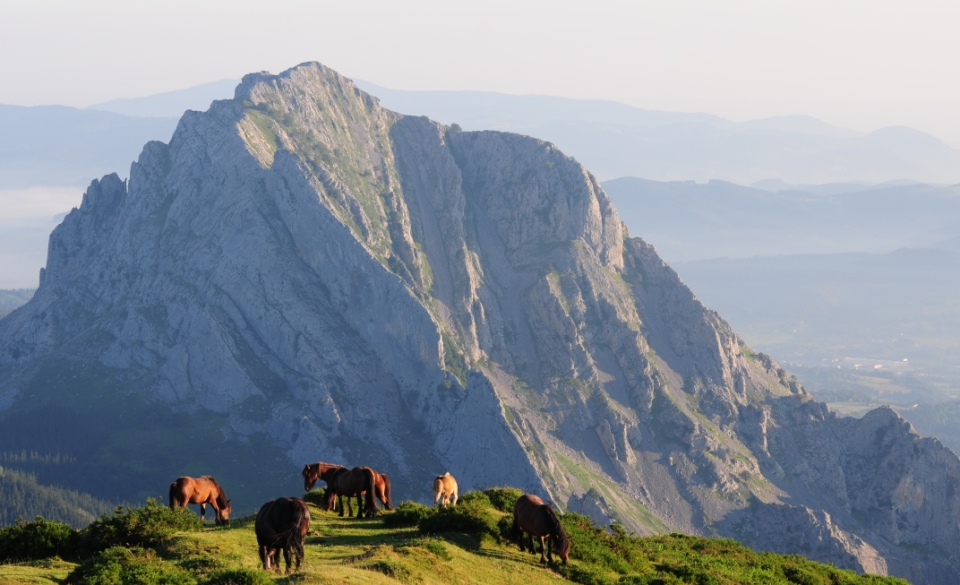
As well as the trekking or mountain bike routes in the Urkiola and Anboto area, Durango is also the starting point for other greenways:
Mountain bike route around Mount Oiz
This route is almost entirely surfaced and gives great views over the mountains surrounding Durango: Gorbeia and as far as the coast in Urdaibai.
The Sanctuary of Urkiola and the viewpoint of the three crosses
Up at the Urkiola pass (on the road from Durango to Vitoria), the starting point for all the routes that cross the park, there is a crossroads that leads up to the sanctuary of Urkiola, a church dedicated to St Anthony of Padua and San Antón Abad. According to the legend, the stone located in its garden is a meteorite and anyone who walks around it seven times will be lucky in love.
The church is surrounded by magnificent landscapes. we would highlight the Via Crucis (Way of the Cross), a short stroll among beech groves that ends up at the gorge of Atxarte with an impressive view over the whole of the Durangaldea area.
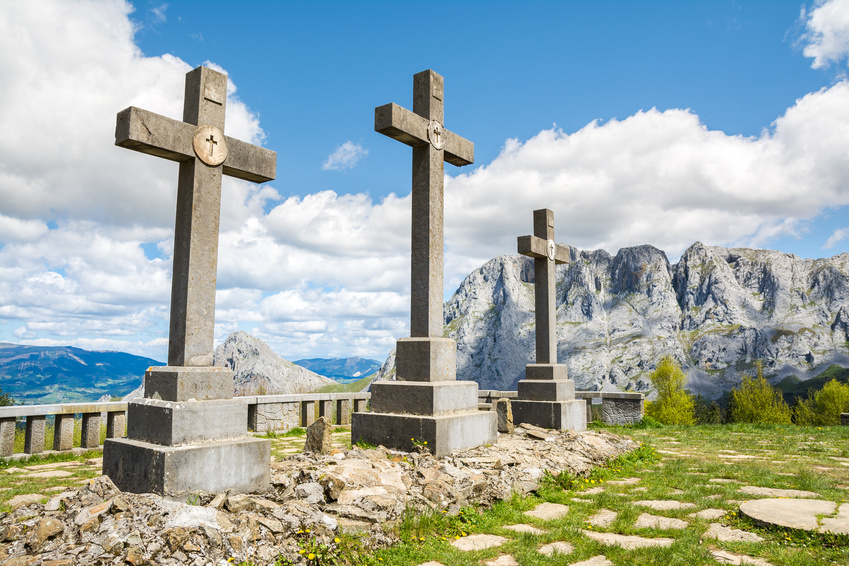
Dates and major events in Durango
Durangoko Azoka. entry free of charge
The Durangoko Azoka (market) is the most important cultural fair in the Basque Country. It is held at the end of the year, usually coinciding with a public holiday at the beginning of December.
Set up in 1965 by Gerediaga Elkartea based on books and records in the Basque language, over the years it has become the showcase of the Basque cultural world.
It is a key event for Basque speakers to find out about the latest cultural novelties, get to know musicians and writers personally and generally enjoy the atmosphere of the fair.
Festivities of San Fausto
The festivities in honour of the patron saint of Durango are held around 13th October. A popular tradition involves handing out Artopillek, sweets only made in Durango during the festivity of San Fausto. They owe their name to the grain of corn (artoa in Basque) inside them.
Images courtesy of the Tourism Office of Durango
We also give you this list on Spotify so you can enjoy that moment of disconnection with our selection:
Establishments nearby
Accommodation nearby
